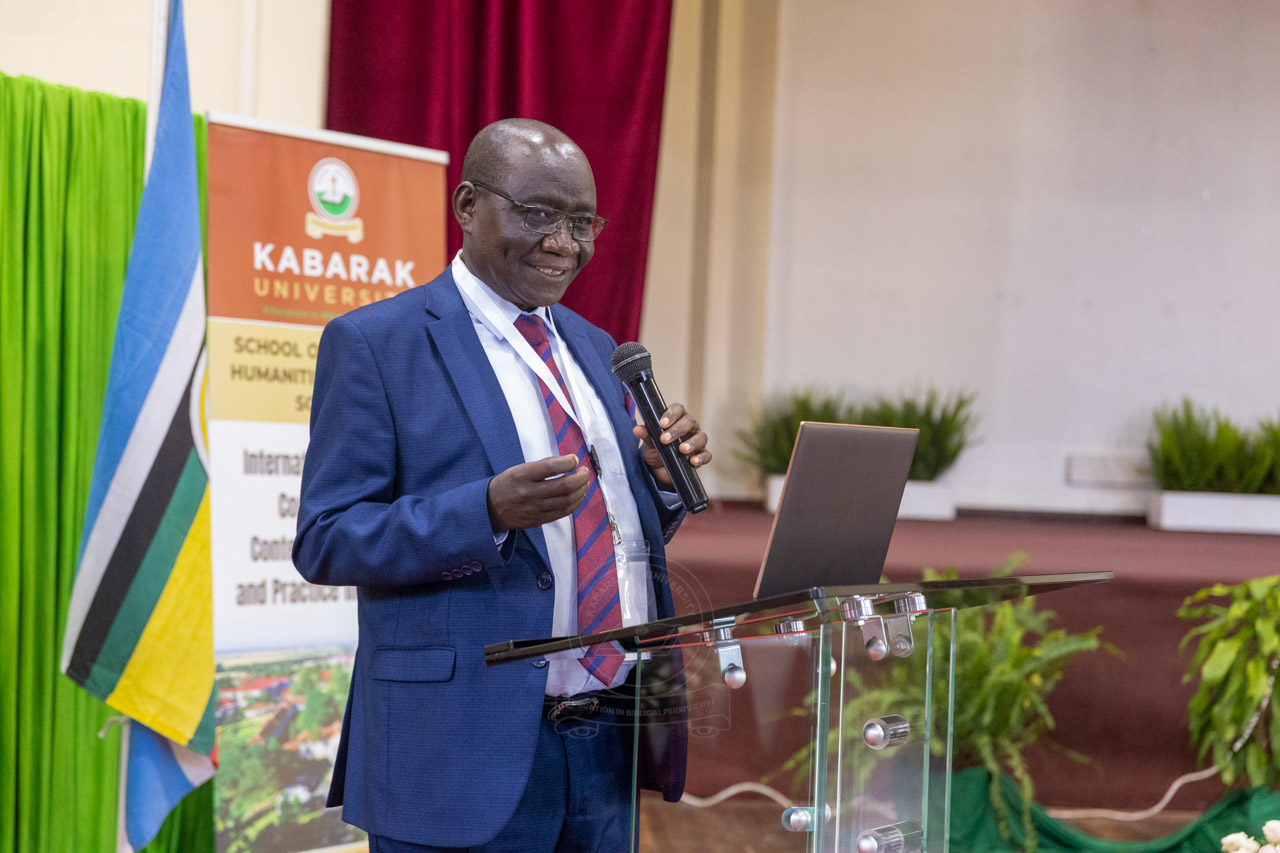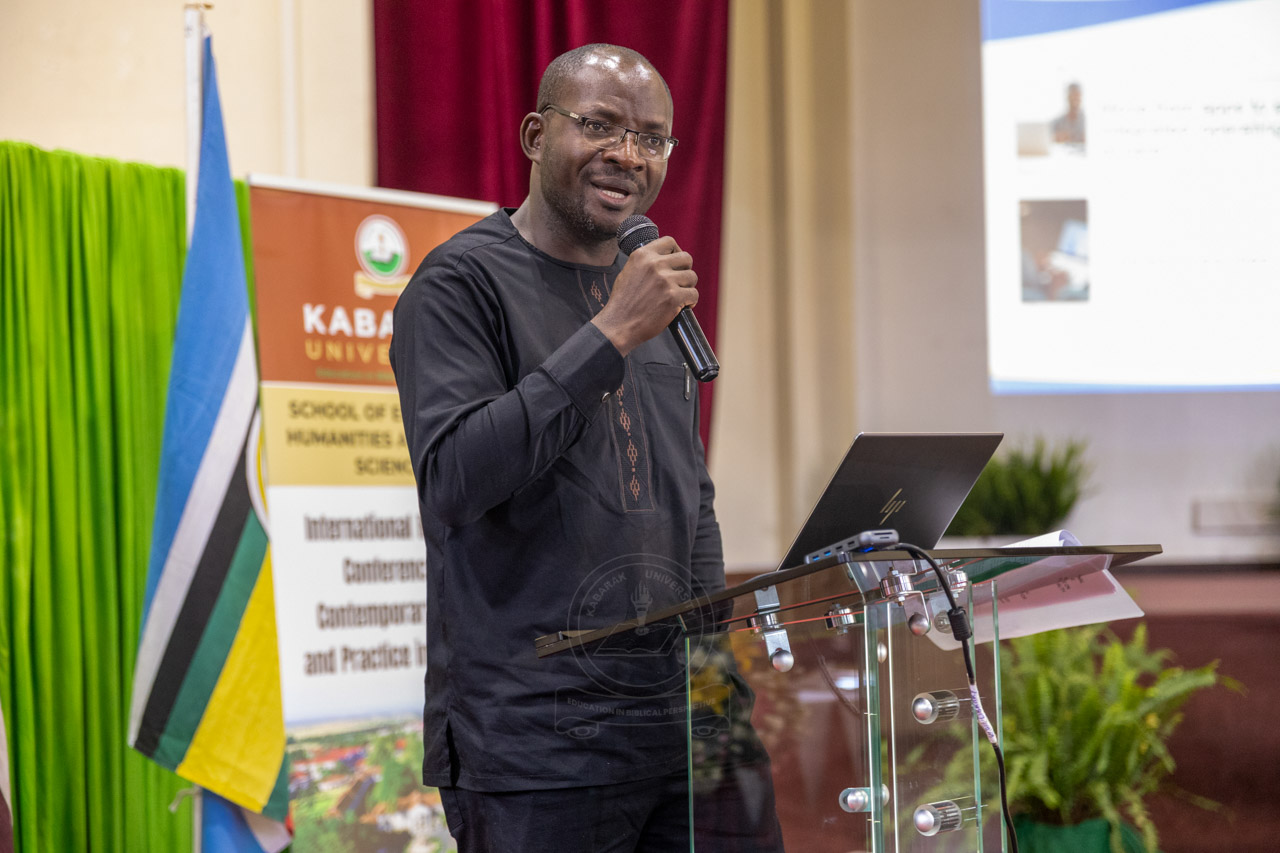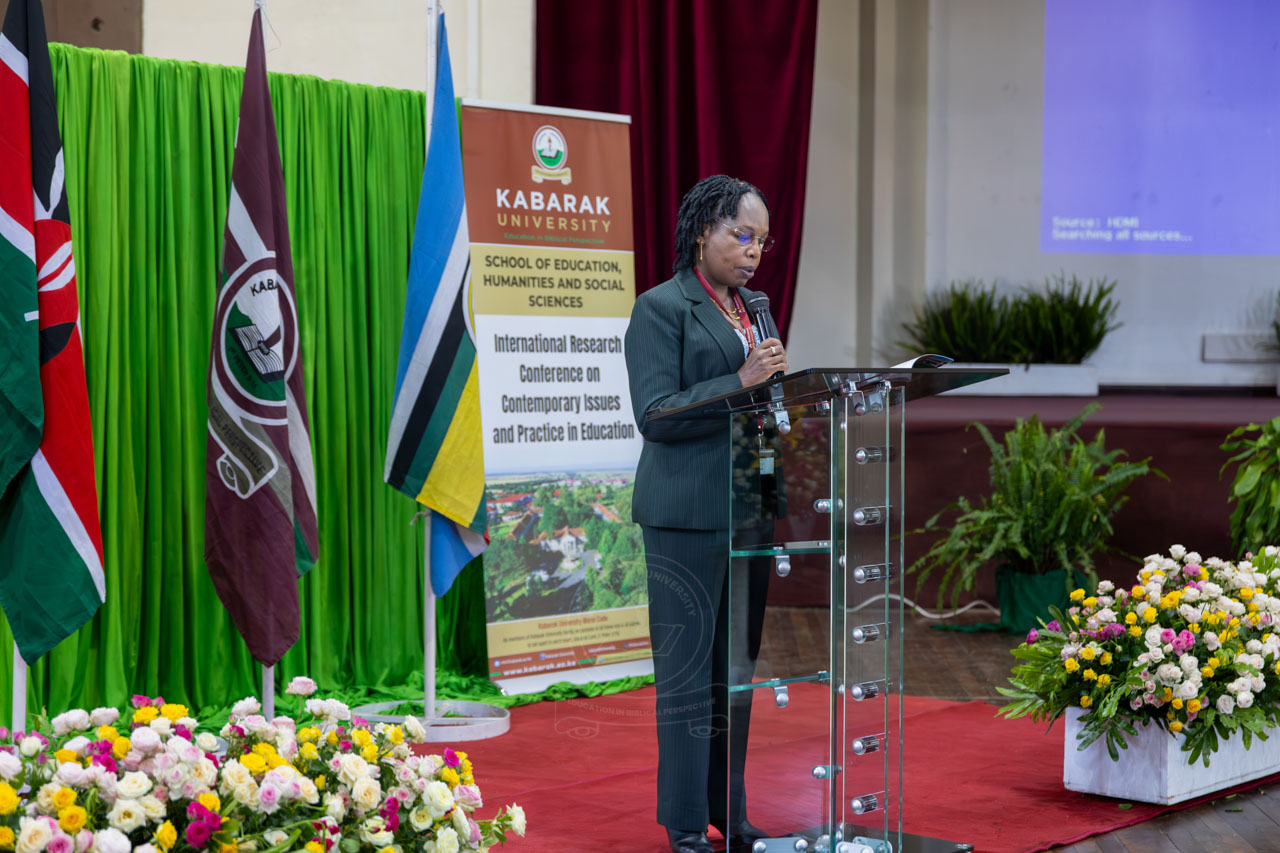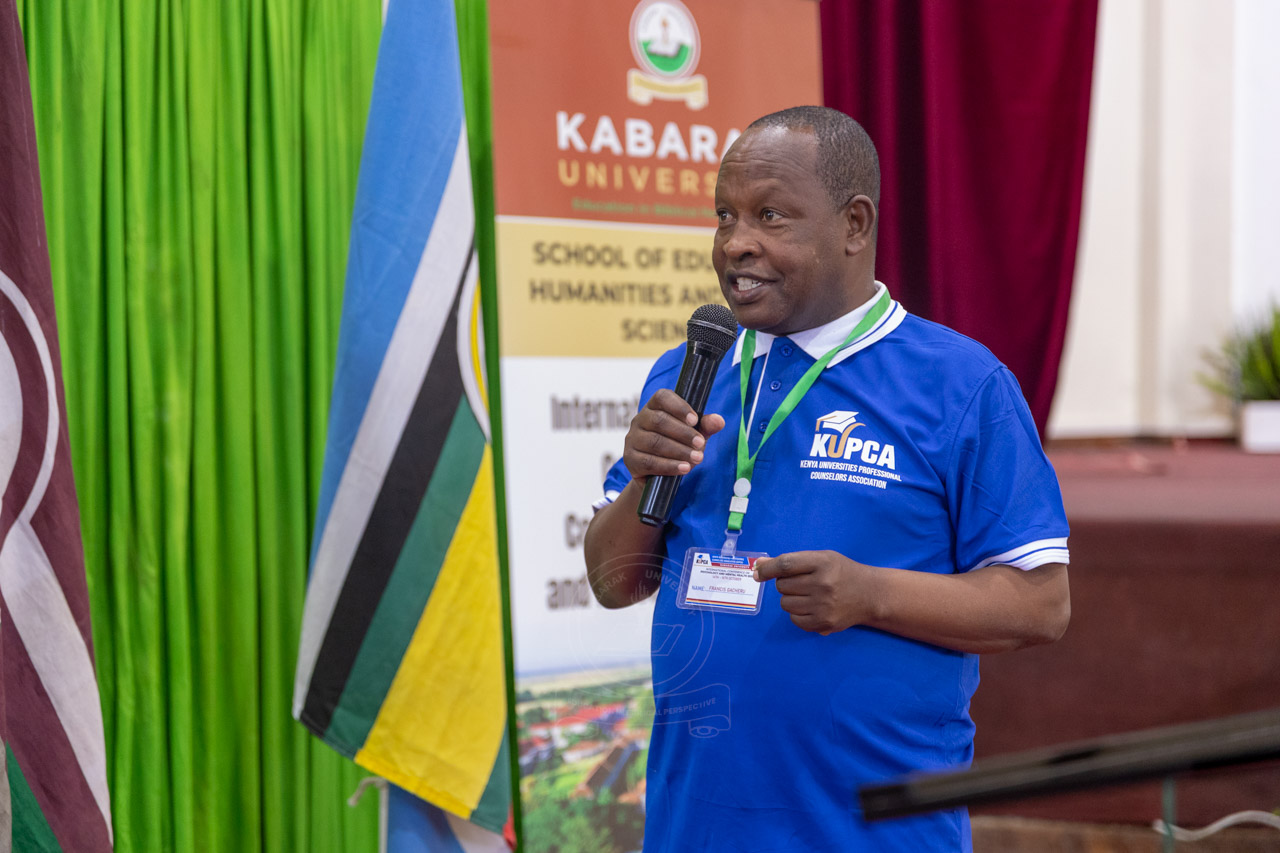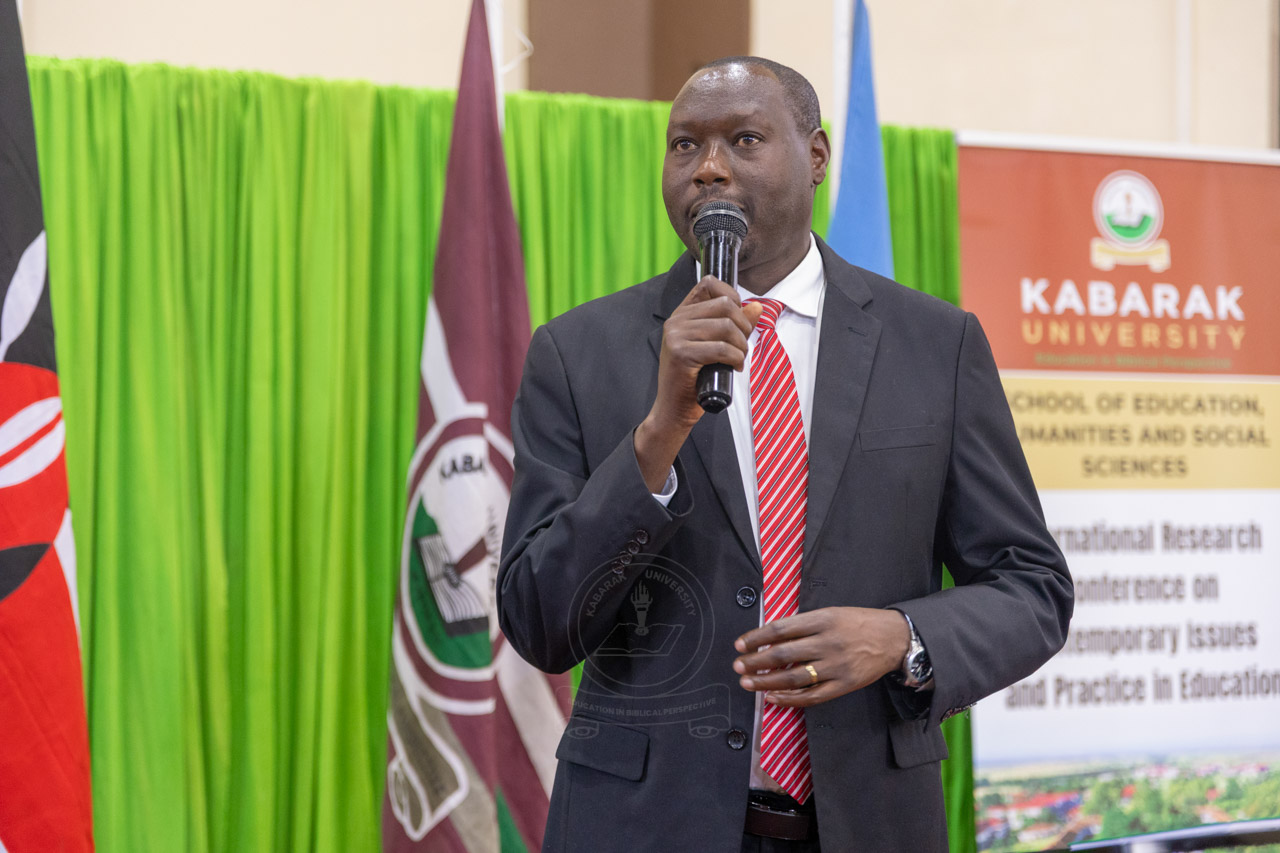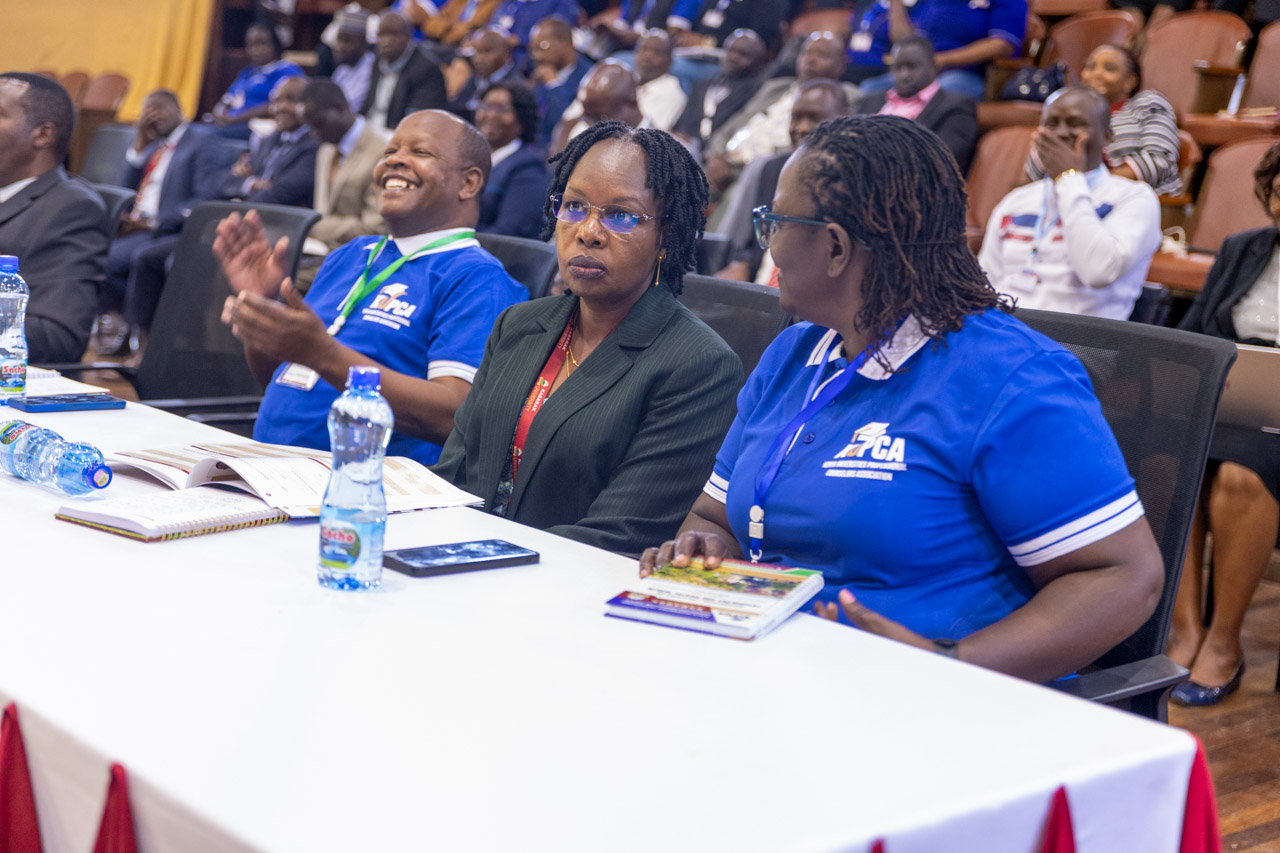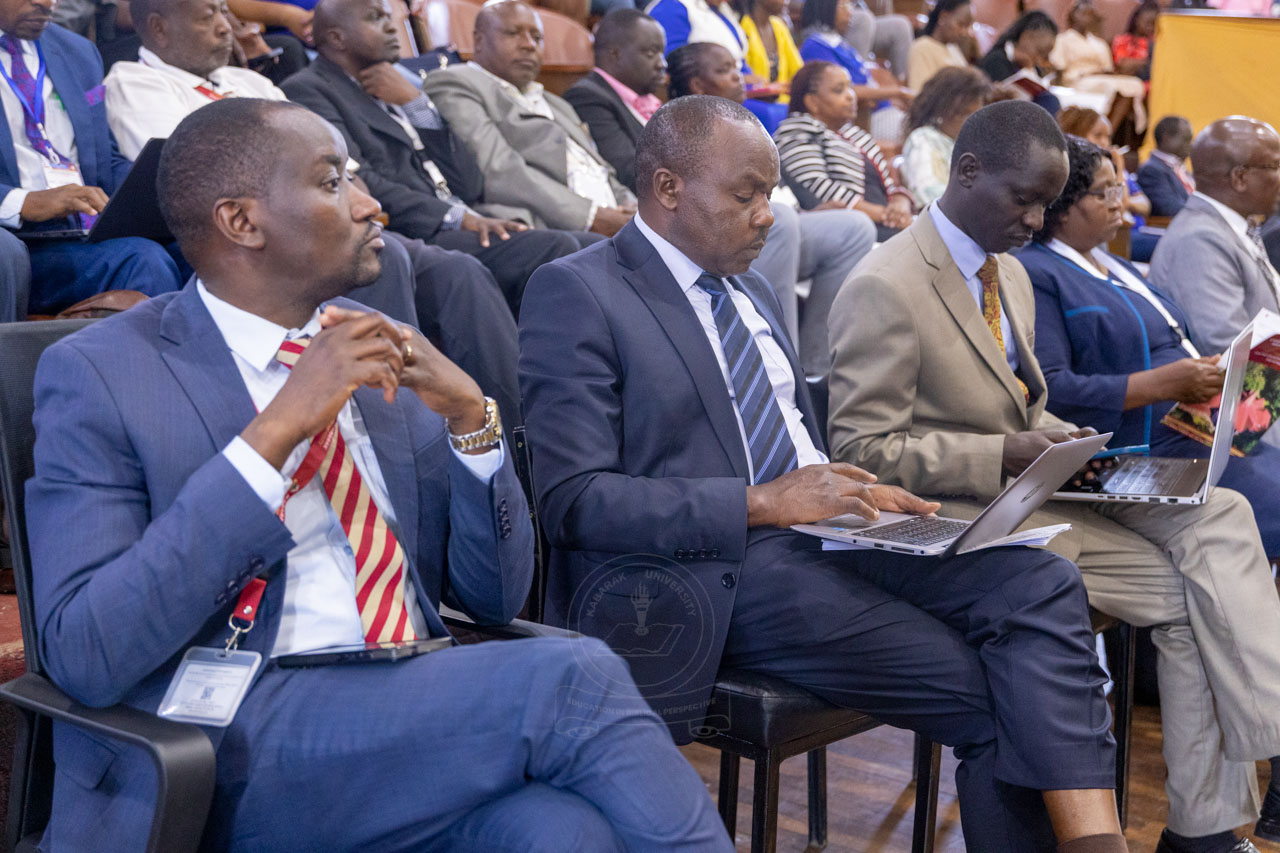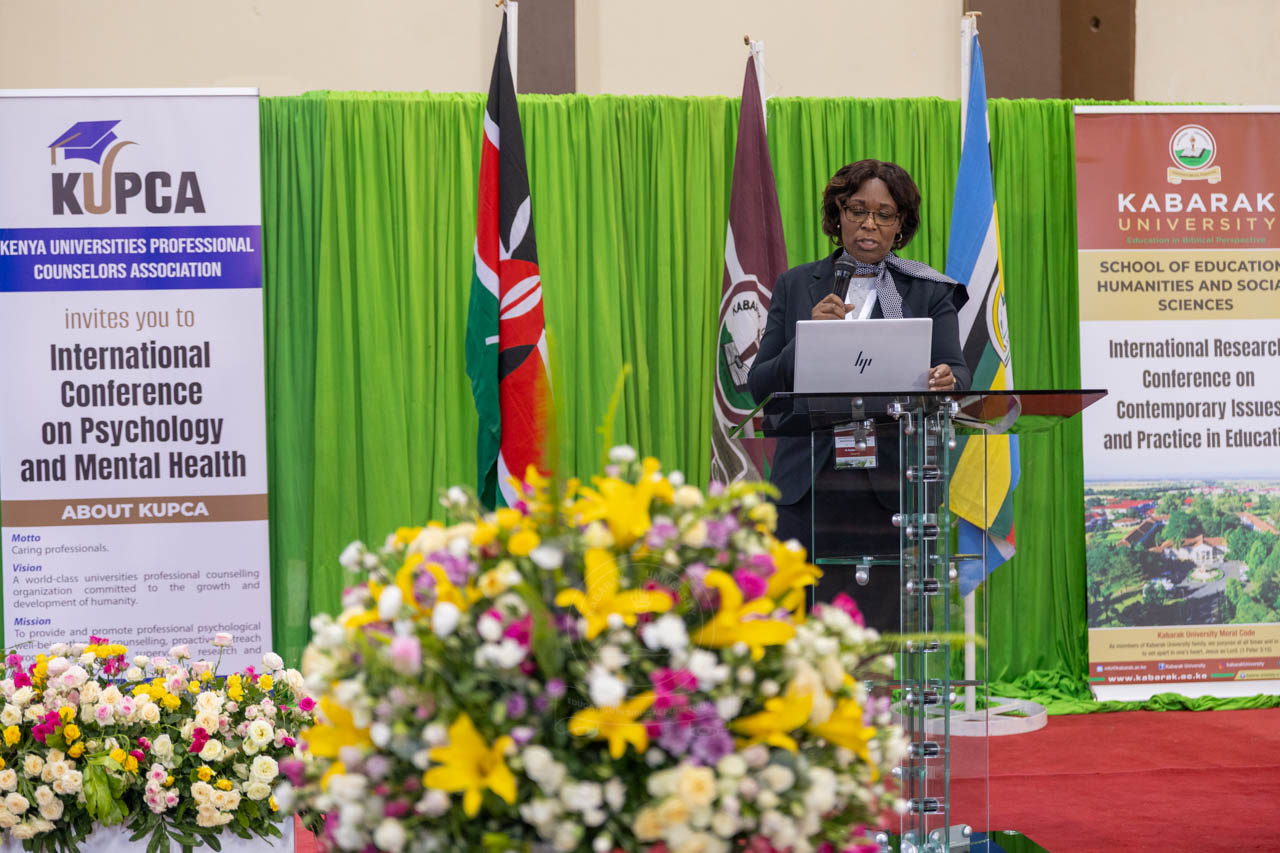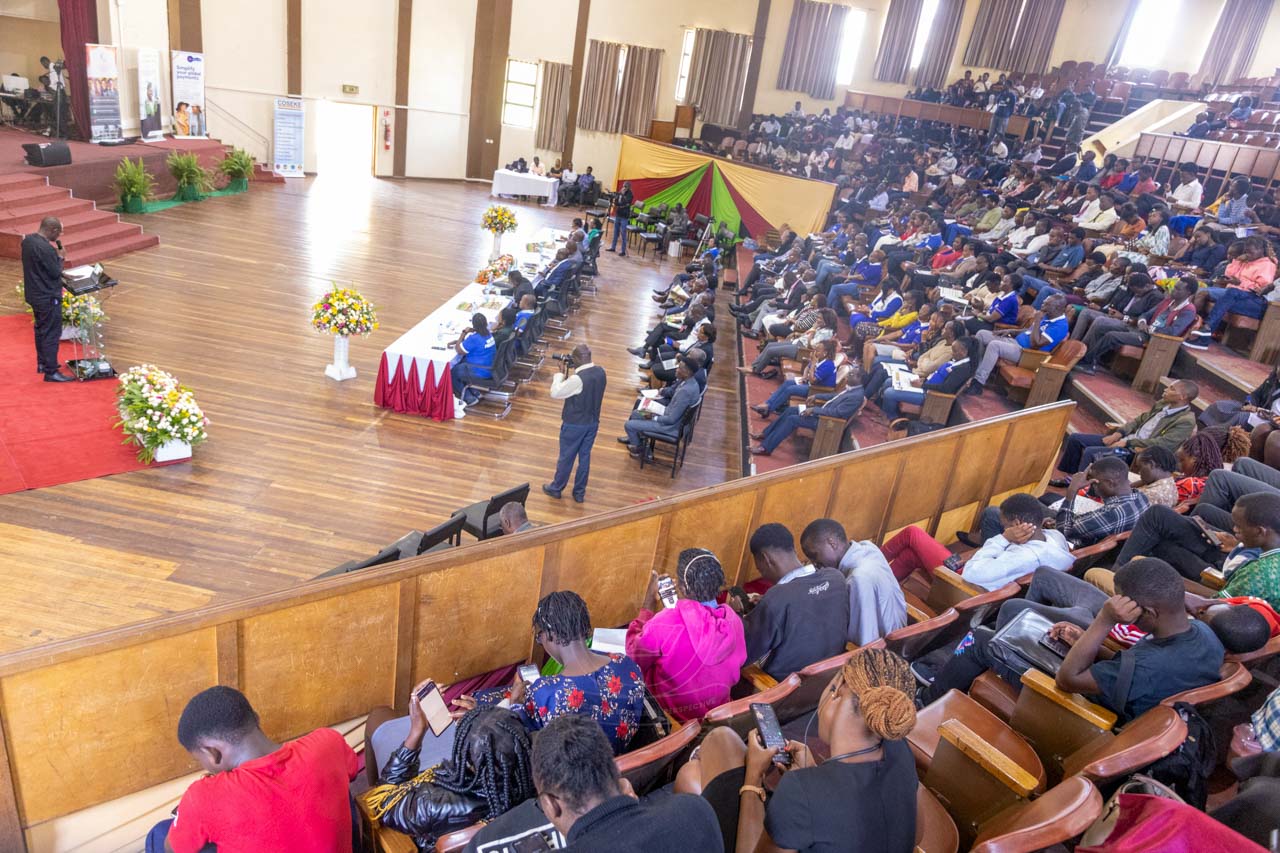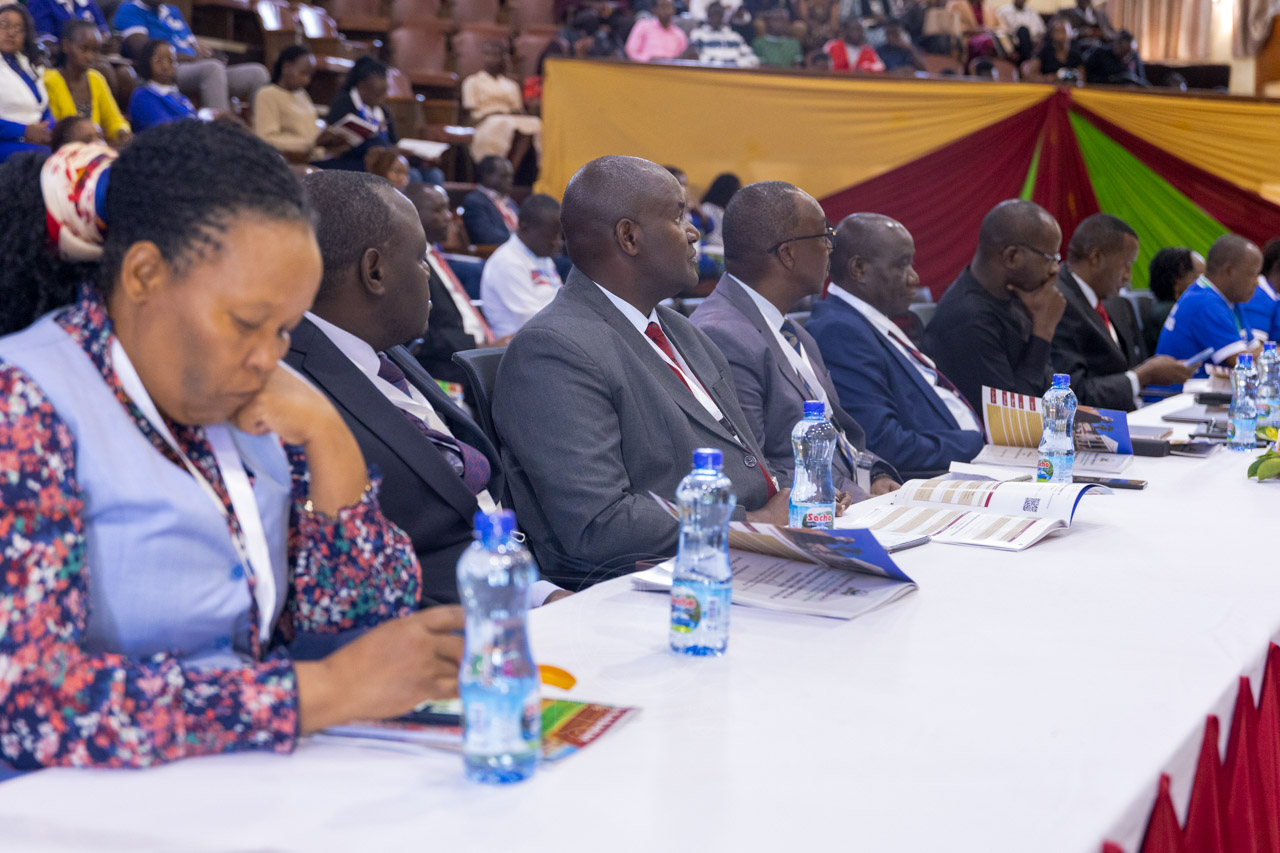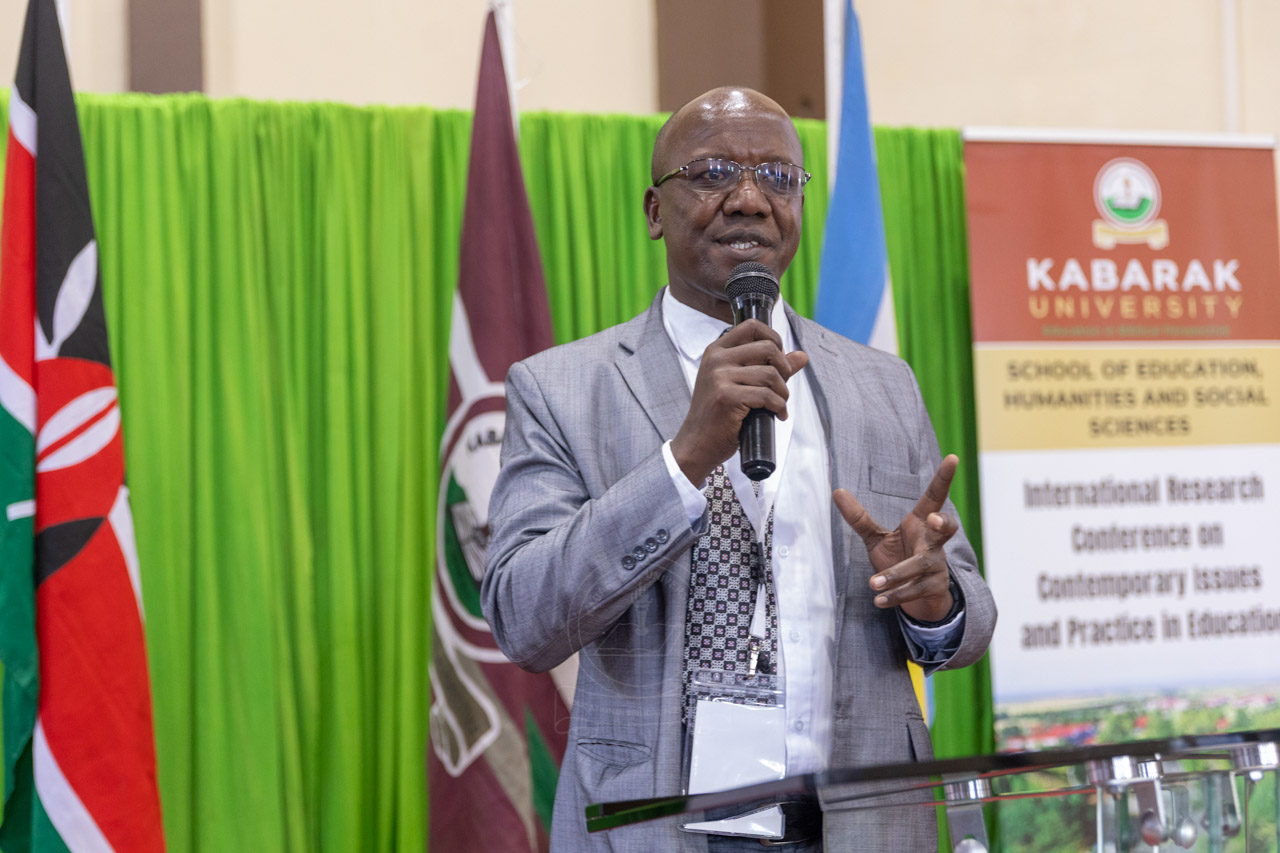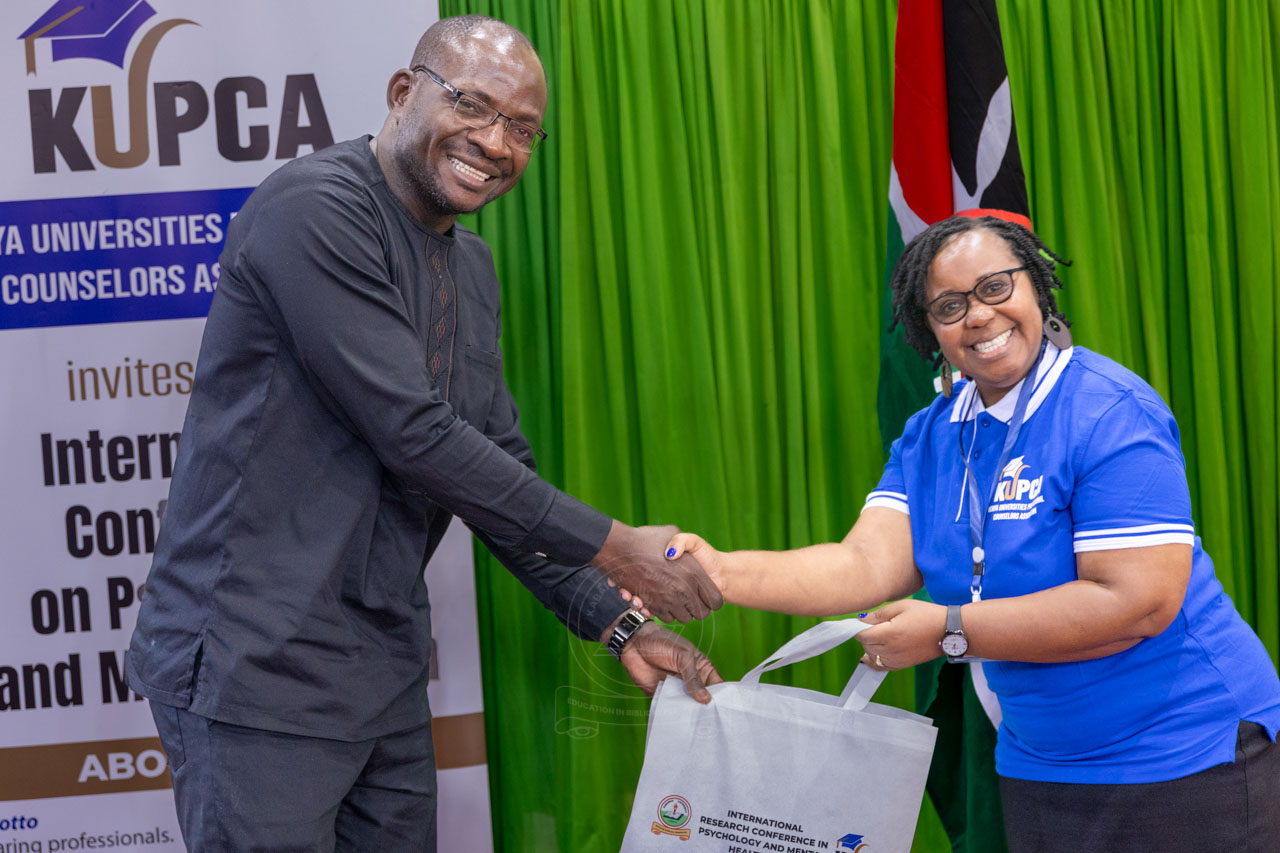Kabarak University held two major international research conferences at its main campus. The joint opening ceremony marked the start of the 15th International Conference on Contemporary Issues and Practice in Education 2025 and the 15th International Research Conference in Psychology and Mental Health 2025. Both events were organized by the Directorate of Research, Innovation, and Outreach and the School of Education, Humanities, and Social Sciences (SEHSS).
The ceremony was presided over by Prof. Ocholla, the Deputy Vice-Chancellor (Academic and Research), who delivered remarks on behalf of the Vice-Chancellor, Prof. Henry Kiplangat. Before the official opening, a courtesy meeting was held at the University Boardroom, chaired by Prof. Ocholla, and attended by members of the University Management Board and guests.
Among the distinguished visitors were Prof. F. Mzee Awuor, Acting Deputy Vice-Chancellor (Administration, Planning, and Finance) at Kisii University, and Dr. Catherine Amulundu, the Guest Speaker and Chairperson of the Kenya Universities Professional Counsellors Association (KUPCA) a key partner in the Psychology and Mental Health Conference. Prof. Gladys Kiptiony, Dean of SEHSS and Dr. Phillip W. Nyawere Director, Research, Innovation and Outreach, were also present alongside other senior University officials.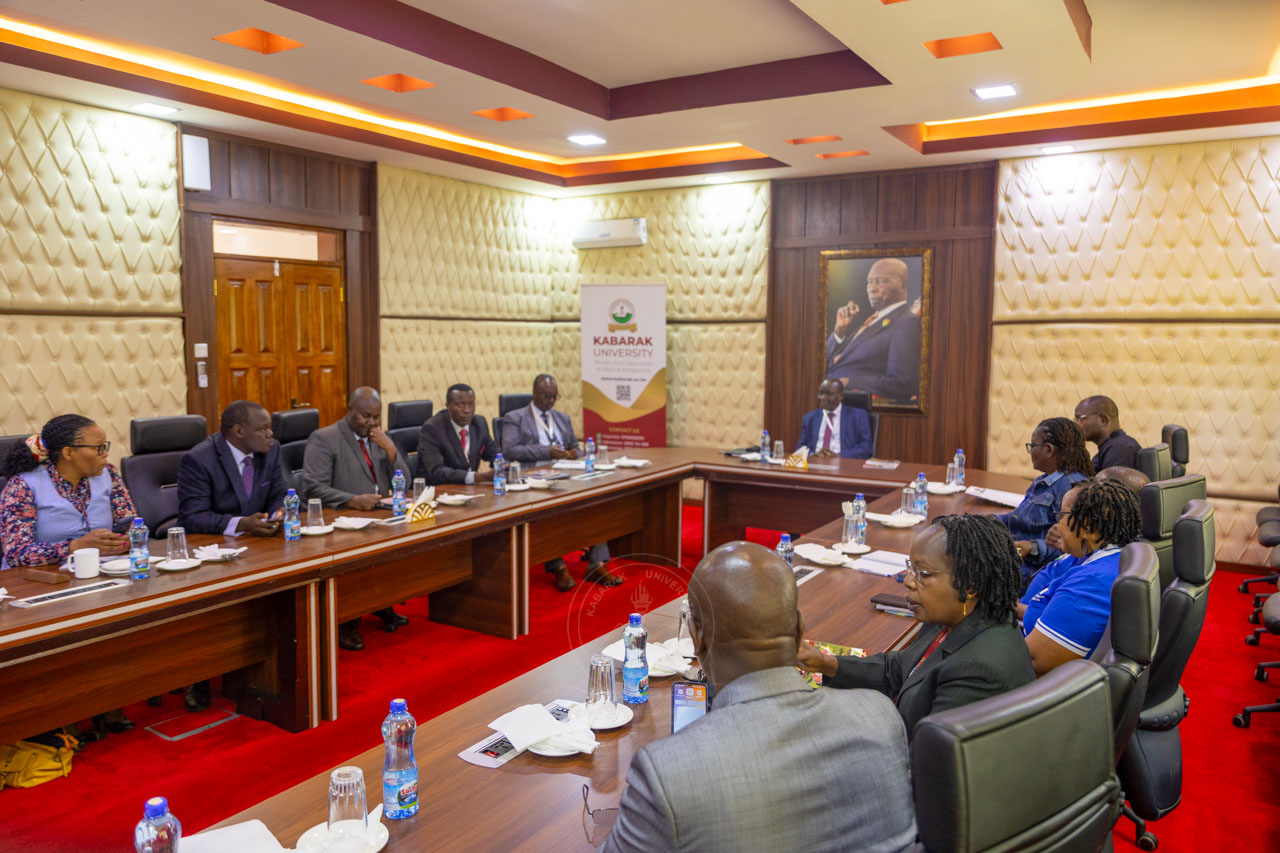
In his address, Prof. Ocholla emphasized the relevance of the two conferences, noting that their focus on education and mental health aligns closely with the University s mission to contribute to human development and social transformation through knowledge and innovation.
The Education Conference, which ran until October 17, was held under the theme Current Trends in Education Management, Policy, Curriculum Design, and Pedagogy. The discussions explored shifts in education policy, the implementation of Competency-Based Education, and the growing role of technology in teaching and learning.
The Psychology and Mental Health Conference, which concluded on October 16, was themed Investing in Mental Health: Innovation and Digitalization for a Sustainable Future. Scholars and practitioners examined how digital tools and innovation can improve access to and delivery of mental health services.
Following the joint opening, participants engaged in independent sessions where they presented research findings and exchanged ideas within their respective disciplines. The conferences brought together academics, researchers, and professionals committed to generating solutions that strengthen education systems and promote mental well-being.



